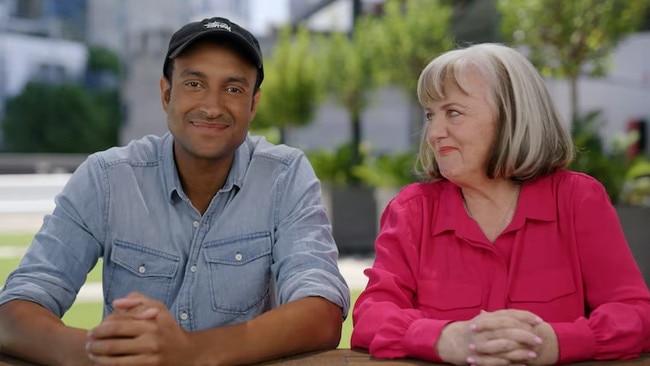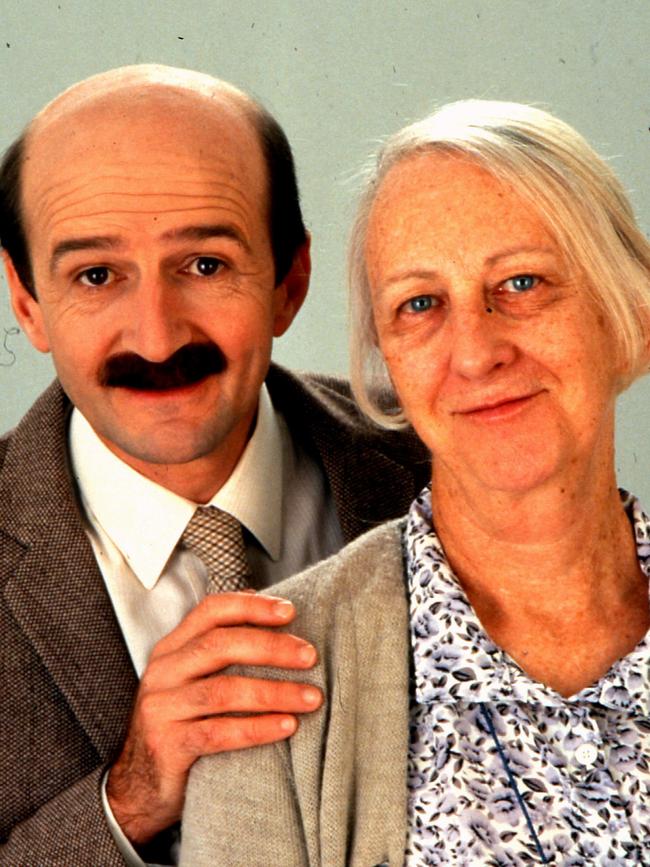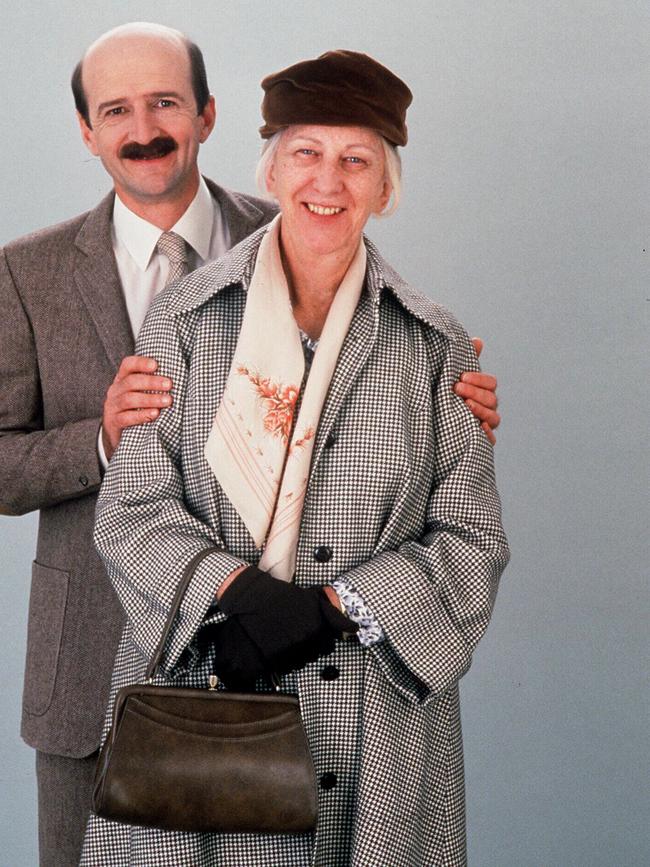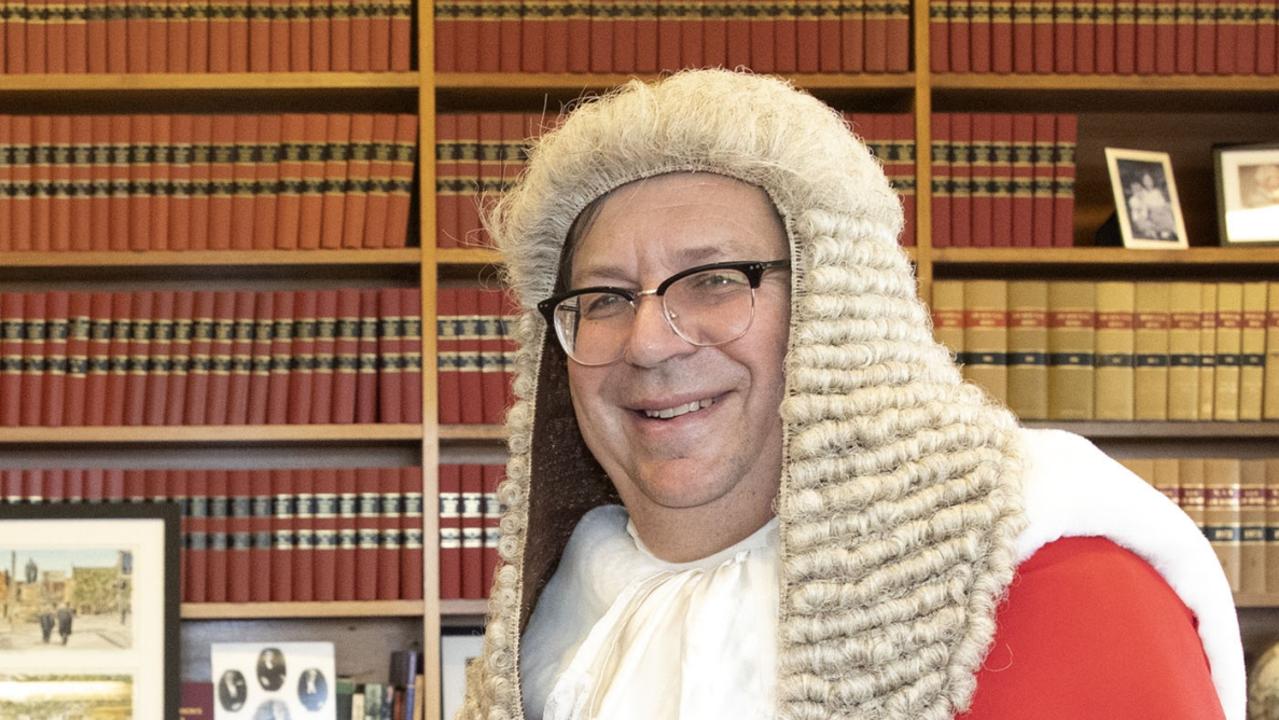ABC remake of Mother and Son is fun, but do we really need a return to predictable comedy?
It’s hard to imagine the 2023 version of Mother and Son coming anywhere near the cruel comedy of the series that began on ABC TV 40 years ago.

We know nostalgia works, but is it really what we need as we head into an uncertain future of artificial intelligence and humanoids, global tensions and gender wars?
Or, to be more specific, do we really need a remake of ABC television classic Mother and Son, albeit updated for a more diversity-conscious Australia?
The 2023 version of the original (which featured the mega-talented Ruth Cracknell and Garry McDonald) goes to air next month and is likely to command a strong audience of people aged over about 50 who have fond memories of the comedy that ran from 1984 to 1994.

The gamble is whether it grabs a new cohort of viewers via co-star Matt Okine, who at 38 has a big following from his stand-up comedy and broadcasting gigs. Okine, who is of Ghanaian and European heritage, plays the son of a very white mother played by veteran comic and TV and radio presenter Denise Scott, who is 68.
The optics are perfect for an entertainment sector keen to be seen as “colourblind” and inclusive when it comes to talent, and a country whose ethnic composition is changing at a gallop. And a show that appears ready to deal with female ageing (Scott), 30-something relationships (Okine) and share houses (Scott and Okine) is certainly more comfortable (and comforting) than sitting down for a night of Black Mirror and other futuristic offerings on free-to-air and streaming.
More comforting too than the addictive crime shows that continue to provide work for some of the best creatives and actors across the globe. And, not to be sniffed at when we are swamped with global stories, it is made in Australia, by Australians, about Australians.
But still. Is this eight-part Mother and Son remake – likely to be more benign than the original, which these days probably would fail the test for non-triggering storylines – the best we can generate in terms of fresh Aussie content?
It’s too early to critique the show itself, with only a snappy trailer available online ahead of the August 23 release, but it’s hard to imagine it coming anywhere near the cruel comedy of the series that began on ABC TV 40 years ago.
Cruel? You’d better believe it. Mother and son back then were abused by and abusive to each other in equal measure, with Cracknell’s cunning character consistently getting the better of her resentful, angry but gormless child, Arthur. He was rendered pathetic by a mother who was certainly losing it but remained crafty enough to bung on the dementia when needed.
Both actors were stunning in their roles, regularly delivering almost unbearable, ugly family truths along with the laughs.
Scott and Okine are very different performers and the trailer itself suggests the 2023 mother is positioned as a “we may be old but we’re sexy” version rather than channelling Cracknell’s award-winning turn of grey-haired pensioner. The accuracy of either of these depictions of older women is open to question, but there is a comfort in stereotypes.
With a mixed-race star, the new Mother and Son looks far more contemporary than the original, which even in the ’80s and ’90s seemed to have been set in the blandest streets of lower middle-class suburbia in homes that looked as if they had not seen a paint brush since the ’50s.

Women, and families, and kitchens have changed dramatically in the years since the show ceased production in 1994, and the remake in the hands of Okine, credited as writer as well as star and working with the original creator, Geoffrey Atherden, is likely to be a good deal of fun.
The pity, especially given the great talent involved, is that returning to this successful formula signals an industry that is playing safe rather than pursuing innovation. Perhaps, then, we should see the new Mother and Son as not so much an exercise in nostalgia as a tried-and-tested formula to squeeze.
Not that the ABC is alone in looking back rather than forward: the remake is increasingly common in films and TV series as distribution platforms remain hungry for content; a reboot of an existing and successful concept is faster and easier than starting from scratch.
There are plenty of examples of Hollywood revisiting the successful movies of earlier decades, or of shooting an Americanised version of a European winner.
The internet tells us the film with the highest number of remakes is an Italian movie, Perfect Strangers, which has been remade a staggering 24 times in several countries. Given the original, Perfetti Sconosciuti, was made as recently as 2016, the number of remakes is extraordinary.
In an article last year for the International Institute for Management Development, professors Knut Haanaes and Michael Sorell made the link between the rush to remake and the failure to innovate. They argued that “Hollywood’s deja vu problem illustrates how many other industries and organisations struggle to resist the temptation of overexploiting successful but fleeting opportunities while under-exploring and not coming up with new ideas and concepts. This is one of the key dilemmas of innovation.” It’s hard to argue against the financial certainty of proven formulas in art as well as services such as takeaway pizza, for example, and there’s no reason to think a whole new generation will not laugh its way through the eight episodes of Mother and Son mark II.
It’s just a little predictable, given the appetite and opportunity for new and exciting ways of telling Australian stories.







